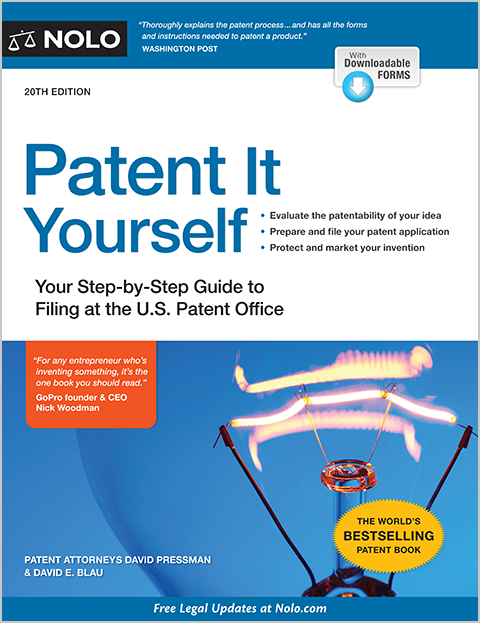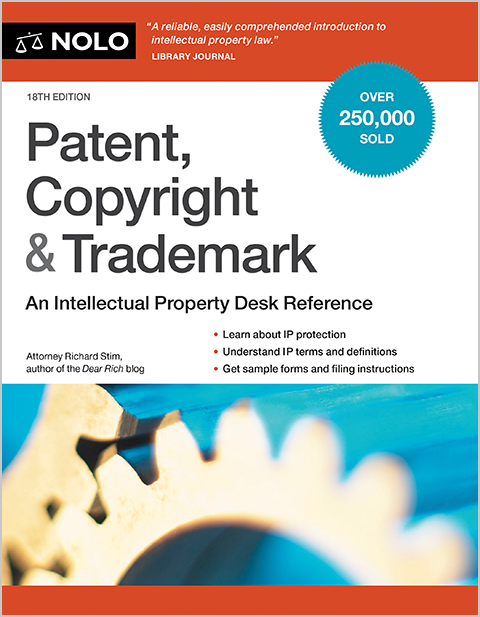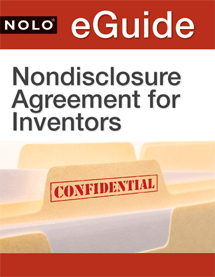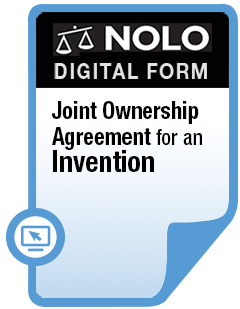A court can award damages to a patent holder after a finding that a patent was infringed.
As an inventor, few situations are more frustrating than having your patented invention stolen by a competitor. Not only did you invest your heart and soul in the invention's development, but you also invested time and money into obtaining a patent from the U.S. Patent and Trademark Office (USPTO)—a process that can take many years and a good deal of work. If a competitor infringes on your patented invention, you might want to initiate patent litigation.
If you sue and win, what do you "get"? While a court can impose an injunctive remedy, such as ordering someone to stop infringing on your product, the most common form of damages from a court comes in the form of a monetary award.
This means that the court will need to set a dollar amount for the award, based on the financial damages you suffered. Importantly, a judge does not simply pull a figure from the air. Rather, a judge will need to examine evidence and award damages within particular categories established by the Patent Act, 35 U.S.C. § 101 and following.
Before deciding to litigate—another lengthy and expensive process—consider what types of damages you might be entitled to receive, assuming you win the case.
Statutory Framework for Patent Infringement Damages
Like most patent law issues, potential damages are explained within the text of the Patent Act itself, at 35 U.S.C. § 284, which provides:
Upon finding for the claimant the court shall award the claimant damages adequate to compensate for the infringement, but in no event less than a reasonable royalty for the use made of the invention by the infringer, together with interest and costs as fixed by the court. When the damages are not found by a jury, the court shall assess them. In either event the court may increase the damages up to three times the amount found or assessed.... The court may receive expert testimony as an aid to the determination of damages or of what royalty would be reasonable under the circumstances.
In plain English, this provision authorizes a court to award damages to a patent holder after a finding that a patent was infringed. This means that you must "win" the litigation. A litigation is "won" ordinarily after a trial or after a motion (essentially a written request for judgment in the plaintiff's favor that's presented to the court).
To win, a plaintiff must not only prove that the patent was infringed, but also overcome any defenses that the alleged infringer might have. For example, the infringer might argue that he or she actually used a different twist on your invention that was not subject to your patent, or that your invention should not qualify for patent protection at all.
Types of Damage Claims in Patent Cases
Although the Patent Act does not enumerate types of possible damages, courts have wide discretion to award certain categories based upon the facts of a case. The two most common damage categories are "reasonable royalties" and "lost profits."
"Reasonable royalties" essentially means the fair market value of a license or "royalty" for the use of your patent by the infringer. For example, a court might determine that the reasonable royalty for a company that infringed your rubber formula on the handle of a toothbrush would be $1 per brush. It could then assess damages accordingly, based upon the number of toothbrushes that infringed.
"Lost profits" refer to the monies that you or your company could have made but for the defendant's wrongful infringement of your patent. The challenge here is that there must be a nexus of causation between the infringement and your bottom line. In other words, you must prove that your business suffered specifically because of the infringement.
For example, imagine a situation where your company uses a patented piece of special operating system software in its computers. Another company used your operating system software without permission in its own computers, and aggressively marketed its functionality to consumers. Consequently, it sold hundreds of computers to eager consumers specifically because it wrongfully used and marketed your software. Here, you would be able to establish lost profits.
For both royalty rates and lost profits, the Patent Act says that the court "may receive expert testimony as an aid." After all, the court will have little objective idea of what value your particular patent may have, either in the specific product or formula, or in the general marketplace. It will be incumbent upon you and your attorney to offer expert witnesses or reports to establish various fair market values on which the judge can rely. (Note that the infringer is permitted to offer its own expert testimony or reports to rebut yours.)
Additional Information
Before deciding whether to sue for patent infringement, you should speak with an experienced intellectual property attorney who specializes in patent law. You can learn more from Nolo's many articles on Patent Law, which will give you a better sense of what questions to ask. For one, you will want to ask your patent attorney about the types of damages that you might be able to seek, prove, and recover in court.
Talk to a Lawyer
Need a lawyer? Start here.
How it Works
- Briefly tell us about your case
- Provide your contact information
- Choose attorneys to contact you
- Briefly tell us about your case
- Provide your contact information
- Choose attorneys to contact you



